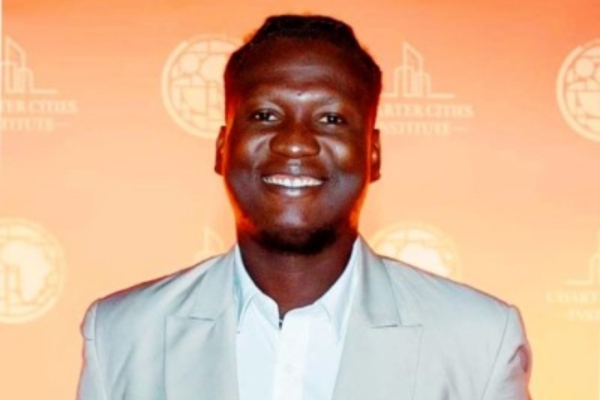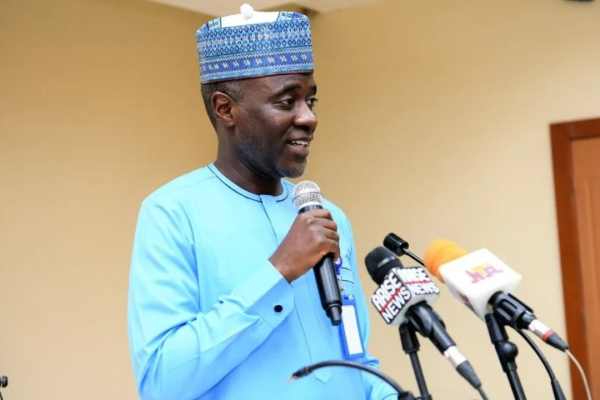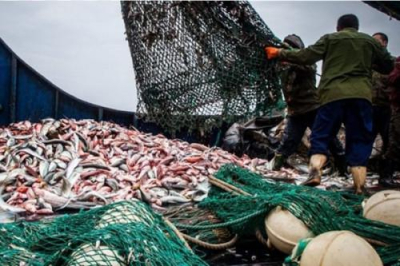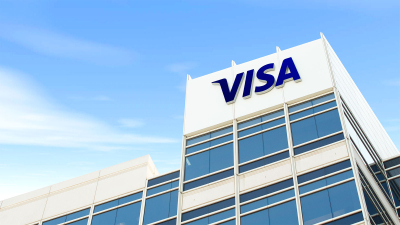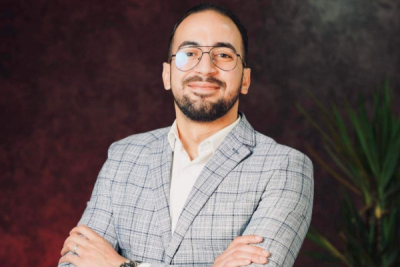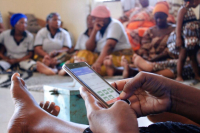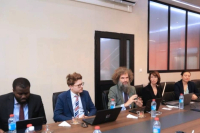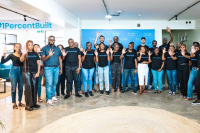Driven by a passion for crafting technological solutions, especially in the financial sector, he tackles challenges within his community. He's a seasoned entrepreneur, having founded and invested in several African companies.
Paul Kwesi Damalie is a Ghanain serial entrepreneur and investor. In 2023, he founded Damalie Innovation Holdings Group (DIH Group), an investment company dedicated to improving the lives of one billion people by investing in key sectors and creating exponential value.
DIH Group focuses on areas such as health technologies, the sports value chain, family entertainment and games, urban infrastructure, urban development, integrated commerce and finance, and climate resilience.
As an angel investor, Damalie supports the startup DrDoGood, founded in 2023, which aims to revolutionize access to and delivery of primary healthcare through a web and mobile application that facilitates interactions between patients and healthcare providers.
In 2013, Damalie co-founded Wordstreem, a social audio streaming app for Christian ministries to engage their communities, serving as its CEO during the first year. In 2016, he co-founded Loystar, a digital loyalty and commerce platform that enables merchants to sell and retain customers, serving as the Director of Business Development and Operations for a year.
Also in 2016, Damalie co-founded Inclusive Financial Technologies, a company developing digital infrastructure for Africa to make financial data globally accessible, serving as CEO for two years. In 2018, he founded Appruve, a startup that facilitates identity verification for individuals and businesses across Africa, where he was CEO until 2023.
Damalie graduated from Radford University College in 2014 with a bachelor's degree in finance and strategic management. To gain experience, he worked for several companies, including serving as the country head of Next Money in Ghana in 2015, joining the advisory board of the Financial Inclusion Forum Africa in 2018, and becoming an angel investor for Moneex, a fintech startup that helps freelancers, businesses, and diasporas in Africa, in 2023.
Melchior Koba
The Nigerian government is accelerating its plans to make telecom services accessible throughout the country. This initiative involves collaboration with private sector companies and international partners to deploy a network of fiber optic cable, stretching 95,000 kilometers nationwide.
The Nigerian Communications Commission (NCC) plans to lower the percentage of unconnected Nigerians in rural areas from the current 61% to 20% by 2027 . The target was announced by Aminu Maida, the executive vice-chairman of the regulatory body, during the 6th edition of the Policy Implementation Assistance Forum held in Lagos on Wednesday, July 10.
"We will create a supportive environment for innovation, ensure robust infrastructure, unlock investment in critical sectors and stimulate economic growth," stated Maida .
This initiative is part of the Nigerian government's broader efforts to provide widespread access to telecommunications services. The plan includes deploying 95,000 km of fiber optic cable across the country in partnership with the World Bank and the European Union. Additionally, the government is exploring satellite solutions to achieve nationwide coverage through the national operator (NIGCOMSAT) or private operators like Starlink .
As of March 31, Nigeria had 219.3 million mobile phone subscribers and 163.8 million internet subscribers, according to official statistics. However, these figures may be inflated due to the prevalence of Nigerians owning multiple SIM cards, which are counted individually. In 2022, the NCC estimated that nearly 35 million Nigerians lacked access to telecom services.
Isaac K. Kassouwi
Focused on improving business operations, he offers a technology management platform that empowers companies to enhance their performance through efficient management tools.
Saad Kemmou (photo) is a Moroccan entrepreneur with a bachelor's degree in international business, entrepreneurship, and marketing obtained in 2008 from Drexel University's LeBow College of Business in the United States. He is the founder and CEO of Hsabati, a startup that provides management services to businesses.
Founded in 2018, Hsabati is a modular and customizable management platform for businesses. Its great flexibility allows users to select and configure the features they need for optimized daily management.
Hsabati offers a CRM (customer relationship management) module that enhances performance at every stage of the sales process, from lead management to customer retention. Additionally, the platform optimizes inventory management, purchasing/sales, production, and finances, and includes a dedicated project management module.
Saad Kemmou is also the vice president of the Moroccan Fintech Federation. Prior to Hsabati, he founded Flood Gate Labs in 2012, a startup incubator and studio focusing on new technologies, mobile telephony, and advertising. He served as CEO until 2020.
He has also gained extensive experience working for various companies in Morocco and the United States. In 2009, he was an account manager at Market Resource Partners, a company specializing in the strategic development and tactical execution of integrated marketing programs for software and technology service firms. From 2011 to 2012, he was project and client relations manager at Media Mobility in Morocco, a startup facilitating the creation, distribution, and monetization of mobile applications across all platforms and screens.
Melchior Koba
Nigeria-based NeuRaL AI has introduced REACTOR, an AI platform designed to help businesses integrate Generative AI into their operations.
NeuRaL AI is a company that offers Artificial Intelligence solutions to businesses, from setup to maintenance and training.
Visa has opened applications for the third cohort of its Accelerator Program in Africa. This initiative aims to support innovative startups by providing resources and guidance for scaling their solutions.
The Program offers mentorship, access to Visa’s network, and partnership opportunities to pilot solutions. It aims to help startups scale their operations and impact across Africa.
Applications close on August 11.
From an economics background, he opted to pursue a career in the transport and logistics sector. Currently, he leads a cutting-edge tech company that facilitates connections between carriers, e-commerce businesses, other companies, and individual customers.
Issam Darui, a Moroccan entrepreneur with a background in management and economics from Mohammed Premier University in Oujda, is the founder and CEO of Colis.ma, a tech startup specializing in international transport.
Founded in 2022, Colis.ma offers a web platform and mobile app that allows individuals, e-commerce merchants, and businesses to manage their international shipments. The startup collaborates with various international carriers, helping to optimize their logistics and resources.
For e-commerce merchants and businesses, Colis.ma enables users to compare rates and find the best offers in the express transport market. Additionally, the platform provides a detailed tracking service, informing users of each step in their parcel's journey, from initial drop-off to final delivery. "Colis.ma is constantly evolving to offer services perfectly tailored to the expectations of both businesses and individuals," explains Issam Darui.
Besides Colis.ma, Issam Darui is the founder and CEO of Lagare.ma, a logistics startup founded in 2014. Lagare.ma offers a web platform and mobile app where users can search, compare, and purchase intercity bus tickets online. The platform supports 25 currencies and is available in 10 languages.
In 2021, Issam Darui also founded Instaweb.ma, a web agency specializing in the creation of websites and mobile applications. That same year, in May, he co-founded Ordera.ma, an online grocery store, where he served as CEO until December 2021.
In 2017, Issam Darui was recognized by Forbes magazine as one of Africa's 30 most promising young entrepreneurs and was named an outstanding young African entrepreneur at the Africa Awards for Entrepreneurship.
Melchior Koba
Internet usage increased to approximately 67% of the global population in 2023, up from 54% in 2019, according to the Broadband Commission. Universal connectivity is not yet a reality, but various organizations are implementing solutions to achieve this goal.
The GSM Association (GSMA) announced the launch of a coalition on Wednesday, July 10, to facilitate access to Internet-enabled mobile phones. Named the GSMA Handset Affordability Coalition, its goal is to enable the world's poorest populations, approximately 3 billion people, to maximize their potential in the global digital economy.
The new coalition comprises leading global mobile operators, suppliers, players in the mobile phone ecosystem, international organizations, and financial institutions such as the World Bank Group and the International Telecommunication Union (ITU).
"Mobile has helped billions of people worldwide to play an active role in our increasingly digital world, but the cost of entry can still be too high for many on low incomes. [...] By building creative solutions to bring mobile internet into the hands of those who need it the most, we believe we can make real strides towards closing the Usage Gap and help millions more maximise their potential by getting online," said Mats Granryd, Director General of the GSMA.
According to the GSMA, about 3 billion people, or 38% of the global population, live in areas covered by the Internet but do not use it for various reasons. The lack of digital skills and relevant content, online security issues, Internet access, and affordability of Internet-enabled mobile phones are among the reasons behind the Internet usage gap.
Furthermore, the International Telecommunication Union explains the delay in fixed broadband in Africa by the population's preference for mobile phones, which are seen as more flexible and less expensive. Indeed, the cost of 2 gigabits on the continent was 4.5% of the gross national income per capita per month in 2023, far from the 14.8% cost of fixed broadband, according to the report "The State of Broadband 2024: Leveraging AI for Universal Connectivity" published in June 2024 by the Broadband Commission, a special body of the ITU.
Adoni Conrad Quenum
Innovate Africa has launched with an initial $2.5 million to support early-stage startups tackling Africa’s challenges.
The fund aims to back up to 20 startups in its first year, focusing on solving complex problems such as insecurity, unemployment, and poverty through purpose-driven technology.
The Malagasy government has outlined an ambitious plan to harness the power of the technological revolution. They are actively pursuing a range of initiatives aimed at achieving substantial progress in a short timeframe.
On Wednesday, July 10, Malagasy Minister of Digital Development, Posts and Telecommunications (MNDPT), Tahina Razafindramalo, welcomed a delegation from Onepoint and Global Business Network International, two French companies specializing in digital technology, for a working meeting.
According to the ministry's statement, discussions focused on several key topics, including the interoperability of information systems and data used by the government, the implementation of e-governance, and the impacts of digital transformation on the Malagasy government and its citizens.
The meeting aligns with the government's ongoing efforts to strengthen the digital sector through innovative technological partnerships. Recently, the government visited South Korea to meet potential partners capable of supporting the digitalization of the agricultural sector, demonstrating its commitment to modernizing various sectors through technology.
Following the meeting, a partnership was announced with Onepoint to organize an event on July 11 and 12 titled "Mastering Data to Transform Madagascar." This event brings together representatives from both the public and private sectors to discuss the importance of data management in the country's digital transformation.
Global Business Network International, established in October 2004, specializes in computer programming and assisting companies in their digital transitions. Onepoint is known for its unique approach that combines technology with human intelligence to support its clients' digital transformation. These future collaborations promise to bring innovative and sustainable solutions to the digital development of Madagascar.
Samira Njoya
Nala, a Tanzanian payments company headquartered in Kenya, has raised $40 million in Series A funding, Founder and CEO Benjamin Fernandes announced on July 9, on X. The fund will support the company’s global expansion and enhance its payment systems in Africa.
Nala allows users to transfer money from the UK, US, and EU to Kenya, Uganda, Tanzania, Rwanda, and Ghana.
More...
The Offshore Lab, a Nigerian company focused on Project delivery, capacity building, education, technology and innovation, has announced the completion of the ICT and Innovation Centre at Sa’adu Zungur University in Bauchi State, Nigeria.
The project, funded by Shell Petroleum Development Company (SPDC) and NNPC Limited, was inaugurated on July 4. It aims to address both local and global challenges through advanced technology by bridging infrastructure gaps and equipping young people with digital skills.
Through his company BenX, he leverages technology to provide financial services to the South African population. BenX helps clients save money and improve their credit scores, enabling them to access affordable loans.
Sean Rossouw (photo) is a South African financial expert and entrepreneur, serving as the founder and CEO of BenX, a fintech startup dedicated to boosting financial inclusion in Africa.
Established in 2019, BenX aims to simplify access to affordable loans and facilitate savings. Its flagship product, CreditBuilder, helps underbanked users improve their credit scores to obtain loans. "CreditBuilder, our signature product, provides customers with a simple and affordable product improve their Credit Score while building an Emergency Savings Fund at the same time," states the company's platform.
BenX leverages a network of registered loan and credit providers to advise clients on loan applications and credit facilities based on their credit scores. To date, more than 100,000 clients have benefited from BenX’s services, with the number continually growing.
Sean Rossouw also co-founded and serves as director of Core Fund Administrators, a company founded in 2009 that provides fund administration services for unclaimed benefit funds within financial institutions. As of January 2023, assets under administration exceeded $23 million, and membership surpassed 23,000.
Before launching these ventures, Sean Rossouw co-founded Kwikpay in 1998, an electronic payment gateway where he served as CEO for over two years. In 2000, he co-founded I-Digital Africa, specializing in online data services for employment and vehicle verification, where he was managing director until 2003. The following year, he founded The Data Factory, a business process outsourcing company focused on early withdrawal services for the retirement finance industry, serving as CEO until 2009.
He holds a bachelor’s degree in finance from the University of Cape Town, earned in 1987. The following year, he joined EY as an audit manager, a position he held until 1991. From 2003 to 2005, he was managing director of LexisNexis Risk Solutions, a data management company.
Melchior Koba
Africa, with its substantial untapped digital economic potential, stands to benefit greatly from strategic investments in technology. Such initiatives are crucial for enhancing competitiveness and fostering economic growth in the 21st-century global economy.
The Nigerian Communication Satellite (NIGCOMSAT) and Dimension Data, a South African IT and internet solutions provider, signed a one-year internet service agreement, on July 5. The agreement was signed by Jane Nkechi Egerton-Idehen, NIGCOMSAT's CEO, and Olugbenga Olabiyi, Dimension Data's country director.
“In line with the aspirations of the Hon. Minister of Communications, Innovation and Digital Economy, Dr. Bosun Tijani, to rejig the nation’s economy through digital transformation, the Nigerian Communication Satellite (NIGCOMSAT) Ltd, has once again signed a partnership agreement with Dimension Data, a leading IT solutions company, internet solutions service provider,” revealed NIGCOMSAT in a press release dated July 5
Under the deal, NIGCOMSAT will provide Dimension Data with internet services on the NigComSat-1R network for one year.
This partnership follows similar agreements Nigcomsat signed in June with satellite telecom providers, including Hotspot Network Limited, a leading company specializing in rural connectivity solutions, and telecom giant Infratel, to enhance rural connectivity.
The initiatives align with Nigcomsat's ambition to become a leading provider of satellite communications infrastructure in Nigeria and Africa, supporting the government's project to bring broadband to every corner of the country.
Hikmatu Bilali
Madagascar's customs services have launched a strategic plan for their digital transformation, partnering with various stakeholders to meet their objectives within the set timelines. This initiative aims to modernize customs operations, enhance efficiency, and streamline processes through the adoption of advanced technologies.
Last week, the Directorate General of Customs (DGD) in Madagascar inaugurated a data warehouse, a database management system designed for data storage and analysis. Funded by the Korea Customs Service, this infrastructure will enable long-term storage, combination, and archiving of data from various sources.
"Malagasy customs is progressing towards a performance-driven process where KPIs or key performance indicators are the guiding principles for the future of the administration. [...] We envisioned a future where customs decisions, including value assessments, temporary admissions, tariff groupings, and advance rulings, would be validated through a digital and rapid process designed to better serve users," said Ernest Zafivanona Lainkana, Director General of Malagasy Customs.
This initiative is part of the modernization and digitization of Madagascar's customs services, following a partnership signed on August 30, 2022, between the government of the Republic of Korea and the DGD. The aim is to support the DGD's strategic plan (31 projects) by funding three projects with a total of $5,163,000 over four years.
The data warehouse's capacity will allow the centralization and consolidation of all sensitive and strategic customs data over a period of 50 years. Additionally, the data center housing the infrastructure ensures continuous operation of new applications and has the potential to accommodate additional racks and servers.
Adoni Conrad Quenum


